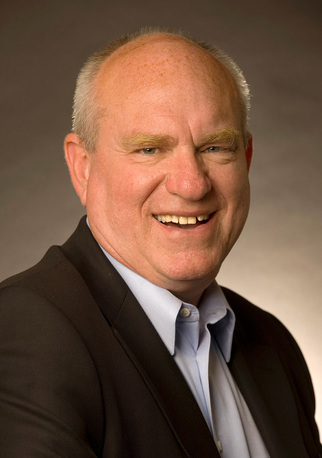PAUL ZAENTZ

Paul Zaentz is a film producer and the founder of Teatro della Pace Films. At the Saul Zaentz Company, Paul was Production Controller on Amadeus, directed by Milos Forman, and Financial Controller on Peter Weir’s The Mosquito Coast. He was Associate Producer on The Unbearable Lightness of Being, At Play in the Fields of the Lord and Anthony Minghella’s The English Patient. He was Executive Producer on Goya’s Ghosts.
Paul had seen Minghella’s first film Truly, Madly, Deeply (1990) in the fall of 1991 and strongly recommended it to producer Saul Zaentz, his uncle. Paul met Minghella in New York soon afterward and they began a creative, business and personal friendship. Minghella edited and mixed his second film, Mr. Wonderful (1993) at the Saul Zaentz Film Center, then adapted the screenplay for and directed The English Patient at the Saul Zaentz Company.
Paul co-produced Anthony Minghella’s The Talented Mr. Ripley, released in 1999. At the time of Minghella’s passing in 2008, Paul was helping him develop a screen adaptation of the novel “Corelli’s Mandolin.”
Paul was born and grew up in Passaic, New Jersey, the son of Bernie Zaentz, Saul’s brother, and Ruth Zaentz. The Zaentzes owned a steak and seafood restaurant in Edgewater, New Jersey on a pier over the Palisades directly across from Manhattan. The restaurant was popular with New Yorkers and received positive write-ups in the New York Times and the Village Voice. As a youth Paul would wake up at 3:00 AM to accompany his father to the Fulton Market in New York to buy fresh fish. “You had to pay a guy at the fish market to watch your car so they wouldn’t take it, and then you had to pay another guy so they wouldn’t take the fish you’d just bought while you were still looking.” Paul said these negotiations prepared him for the film industry.
Paul studied Economics at the Wharton School of the University of Pennsylvania, creating his own curriculum with a blend of liberal arts and humanities in addition to econ. He also earned a JD from Penn. Paul belonged to the only fraternity on the campus at the time with a diverse mix of members, and made lifelong friends among the group, which still meets each year in Philadelphia.
Growing up, Paul didn’t know his West Coast uncle Saul very well, and had met him only five or six times. In 1969 Paul and a roommate took a cross-country road trip to San Francisco to see Saul, driving a ’64 Bonneville convertible, staying at colleges along the way. Paul noted that all across the country, each time they’d go into a bar three out of four songs on the jukebox were by Creedence Clearwater Revival.
Paul briefly practiced law in New York. He didn’t like it and moved to California, arriving at Fantasy in Berkeley in November 1975, a month after One Flew Over the Cuckoo’s Nest was released. He soon began working for Fantasy Records in the Legal department.
In 1981 Saul Zaentz suggested that Paul come over to the film side of the business. Paul had nothing creative to do in music, but in film saw that he could have a voice. Amadeus was Paul’s first film, one that he calls a “great experience.” Amadeus was shot on location in Prague. Saul and director Milos Forman chose Prague, Forman’s birthplace, because it had been undamaged by bombing in World War II – Paul recollected that all the film crew had to do was take down a couple of signs and wires, do a 360-degree shot and it was the 1780s.
Paul had many jobs on Amadeus, was in charge of the budget, oversaw accommodations and travel, and did all the shipping of dailies. Saul’s father Bernie, the restaurateur, was the caterer on the set and each week sent a truck to Germany to bring back fruit and vegetables for the cast and crew – he went over his budget. The almost-entirely Czech crew was very close and bent over backward to accomodate Forman. On the set Paul shared a tiny office with an executive producer that had a sink in it, which Wardrobe would use to clean costumes.
The Mosquito Coast, filmed on location in Belize, was Paul’s second film. Australian director Peter Weir worked with a very small crew of Aussies who were used to working efficiently under tight budgets. Paul admired their working style and made many friends on this shoot, including people whom he continued to work with on major productions. Mosquito Coast had a 6-day shooting schedule because it was on location. On Sundays a motor skiff would pick up the staff and take them to a tiny cay with a hotel and hammocks – they would dive, snorkel, eat, sleep, then return to Belize City.
In the fall of 1991 Paul saw Truly, Madly, Deeply at the Opera Plaza, a tiny theatre in San Francisco, playwright and stage director Anthony Minghella’s first motion picture. Paul was impressed with the movie and strongly recommended it to Saul Zaentz. Paul soon introduced himself to Minghella, and then Saul met him. In the summer of 1992 Anthony Minghella received a manuscript of “The English Patient” from the novel’s author, Michael Ondaatje, who wanted him to adapt it for the screen. In October the novel won the Booker Prize, and Hollywood studios heavily bid on it. In November the Zaentz team met with Ondaatje, who also knew and admired Saul Zaentz’s films, and by the spring of 1993 they had finalized a deal for the rights.
